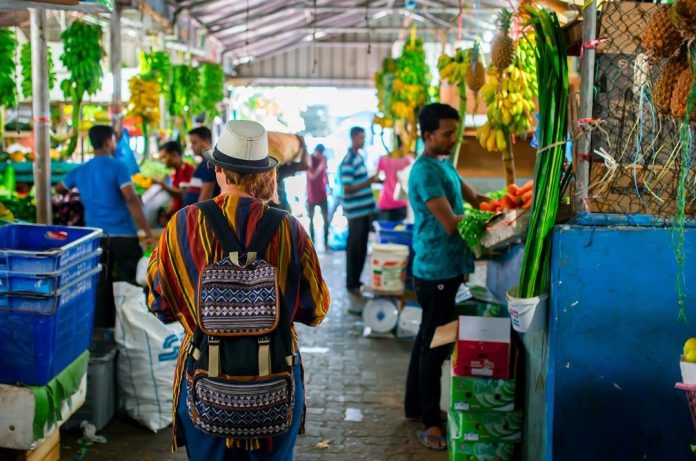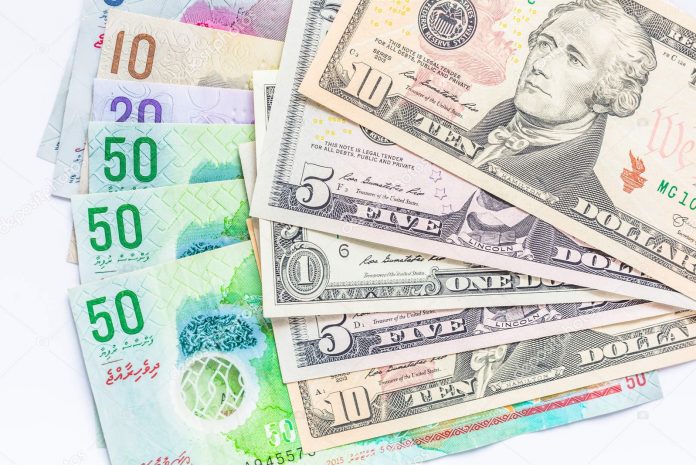Dollar rate inflation generally stands for a sustained increase in the dollar rate. A depression, on the flip side, is a sustained long-term downturn in economic activity in one or more economies. The rise of dollar rate inflation and the depression of the economy together is capable of an inevitable change.
The repercussions an inflation has on the time value of money is defined as it decreases the value of a dollar over time. The time value of money is a concept that describes how the money available to you today, is worth more than the same amount of money at a future date.
“Inflation increases the price of goods and services over time, effectively decreasing the number of goods and services can buy with a dollar in the future as opposed to a dollar today,” said a Finance Expert when asked about currency inflation. “In the parallel market today, the dollar range in the Maldives fluctuates between USD1= MVR17 – MVR18.5.”
The owner of a garment shop in Hulhumale’ told: “it is exhausting to get US dollars and he recently bought USD 1000 at the rate of MVR.17.50 per USD.”

Why Might the Dollar Rate Inflate?
According to a professional working in the finance industry for over 10 years, “demand can rise because consumers have more money to spend. More spending increases inflation, in particular, higher consumer confidence. When wages are steady or rising, and unemployment is relatively low, inflation is likely to rise. As well, manufacturers are likely to raise prices if consumers are willing, or capable, of spending more.” This is one side of dollar inflation.
“Then there’s the supply side. Lower supply can drive down demand, pushing prices higher. A decline in supply can happen for a number of reasons, such as disasters that disrupt the supply chain or manufacturers’ capabilities.”
The rate of inflation in a country can have a major impact on the value of the country’s currency and the rates of foreign exchange it has with the currencies of other nations. Especially for a country like the Maldives, which depends mostly on the income generated from Tourism. “A stable route for dollar inflow can perhaps solve the impacts our economy might face due to currency inflation”
Experts from the field and monetarists believe in certain policies to control and solve currency inflation. Monetarists argue there is a close link between the money supply and inflation, therefore controlling money supply can control inflation. Second, up comes, Policies to increase the competitiveness and efficiency of the economy, putting downward pressure on long-term costs. “Trying to control wages could, in theory, help to reduce inflationary pressures” mentions a finance expert when asked about simple solutions that could control inflation.
Often inflation is caused by persistent uncompetitiveness and rising costs. Supply-side policies may enable the economy to become more competitive and help to moderate inflationary pressures.



















